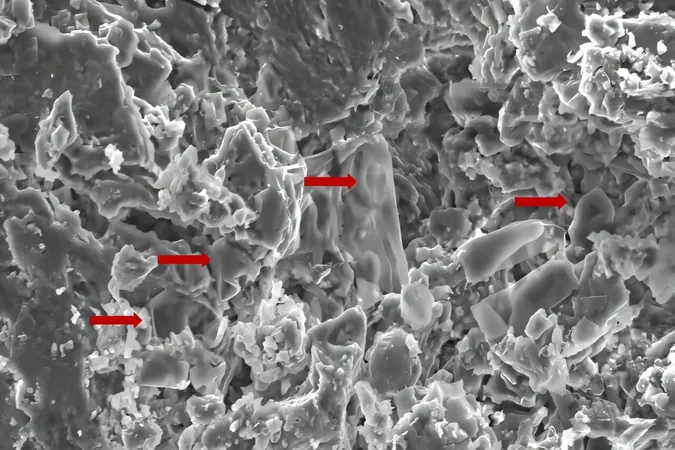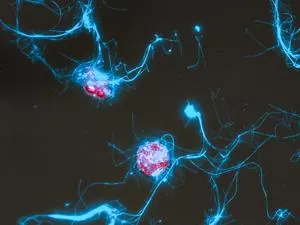
Unlocking the Secrets of Dinosaurs: How Fossils Could Revolutionize Cancer Research
2025-05-29
Author: Wei Ling
Dinosaurs May Hold the Secrets to Cancer Discoveries!
In a groundbreaking study, researchers from Anglia Ruskin University and Imperial College London have unveiled that analyzing soft tissues from dinosaur fossils could pave the way for revolutionary cancer discoveries. This innovative research, published in the journal Biology, showcases advanced methods designed to extract molecular data from these ancient specimens.
The Remarkable Findings
While examining a rare Telmatosaurus transsylvanicus fossil—an ancient, duck-billed herbivore living 66 to 70 million years ago in what is now Romania—scientists identified structures akin to red blood cells. Using cutting-edge scanning electron microscopy (SEM), they were able to detect low-density formations resembling erythrocytes within the fossilized bone.
A New Perspective on Fossil Preservation
These astonishing findings prompt a reevaluation of how we approach fossil preservation. The study suggests that preserved soft tissues and their cellular components may be more common in ancient remains than previously believed. By isolating preserved proteins and biomarkers, scientists aim to unlock insights into the diseases that plagued prehistoric creatures—including cancer—potentially influencing future human treatments.
The Evolutionary Battle Against Cancer
Notably, evidence of cancer has already been discovered in the same species of dinosaur, emphasizing the deep evolutionary roots of this disease. "Dinosaurs, with their longevity and sizeable bodies, provide a fascinating lens through which we can investigate how these ancient beings managed cancer susceptibility and resistance throughout millions of years," states Justin Stebbing, Professor of Biomedical Sciences at Anglia Ruskin University.
The Importance of Soft Tissues in Disease Research
Proteins found in calcified tissues like bones offer remarkable stability compared to DNA and are less prone to degradation. This makes them prime candidates for studying ancient diseases, including cancer. While skeletal structures yield valuable data, soft tissues harbor proteins that can unveil the biological mechanisms behind diseases.
The Future of Paleontological Research
Stebbing emphasizes the urgency of prioritizing the collection and conservation of fossilized soft tissue. As molecular techniques advance, the potential for deep insights into disease evolution becomes ever greater. "Our research encourages future explorations which could unlock key discoveries that may benefit humanity. Coordinated long-term efforts are crucial to ensure that upcoming researchers have access to specimens ripe for revolutionary molecular analysis," he concludes.




 Brasil (PT)
Brasil (PT)
 Canada (EN)
Canada (EN)
 Chile (ES)
Chile (ES)
 Česko (CS)
Česko (CS)
 대한민국 (KO)
대한민국 (KO)
 España (ES)
España (ES)
 France (FR)
France (FR)
 Hong Kong (EN)
Hong Kong (EN)
 Italia (IT)
Italia (IT)
 日本 (JA)
日本 (JA)
 Magyarország (HU)
Magyarország (HU)
 Norge (NO)
Norge (NO)
 Polska (PL)
Polska (PL)
 Schweiz (DE)
Schweiz (DE)
 Singapore (EN)
Singapore (EN)
 Sverige (SV)
Sverige (SV)
 Suomi (FI)
Suomi (FI)
 Türkiye (TR)
Türkiye (TR)
 الإمارات العربية المتحدة (AR)
الإمارات العربية المتحدة (AR)